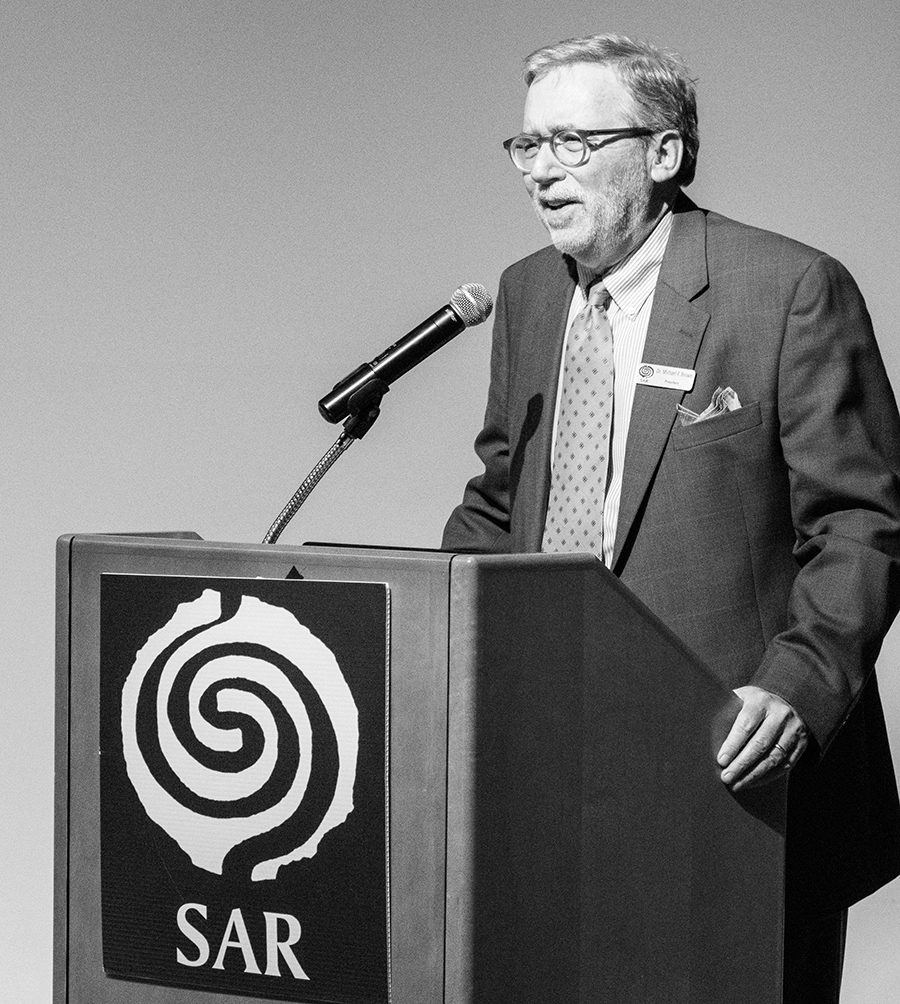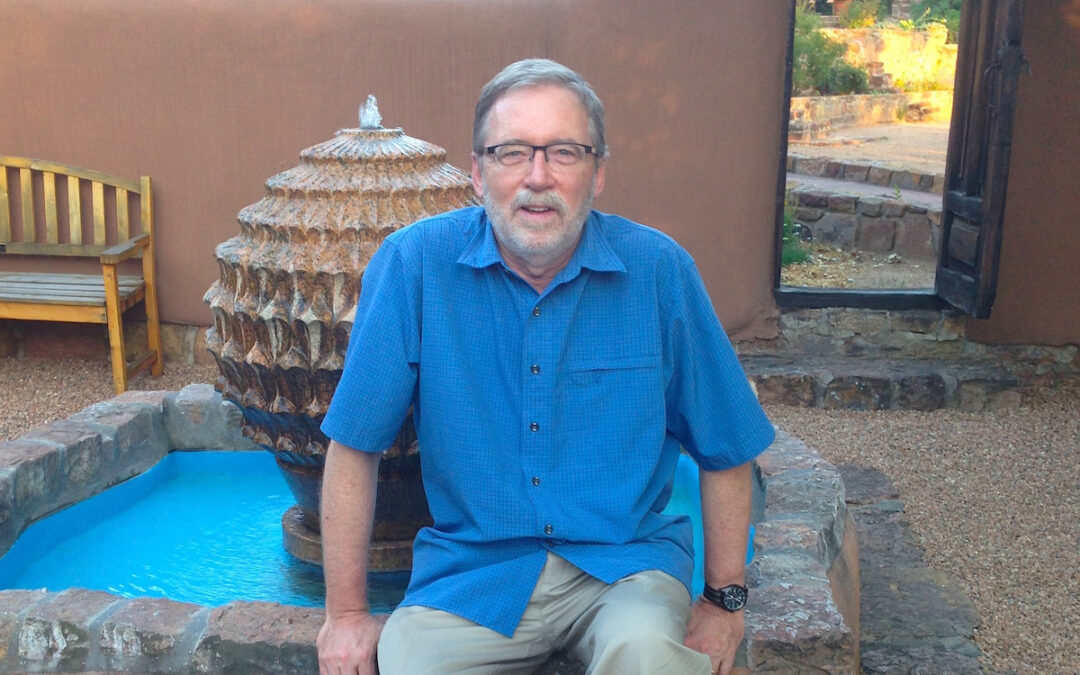Michael F. Brown in the SAR President’s Garden in 2014.
If you come to a fork in the road, take it.—Yogi Berra
Several years ago, I alerted our board of directors of my intention to retire after ten years as SAR’s twelfth president. I am now on the cusp of that milestone. Leading SAR has been a privilege and the pinnacle of my career as an anthropologist and educator. One thing I’ve learned over a long career, however, is that institutions need new leadership at regular intervals to meet the challenges of a changing world. That’s why I chose to step down now.
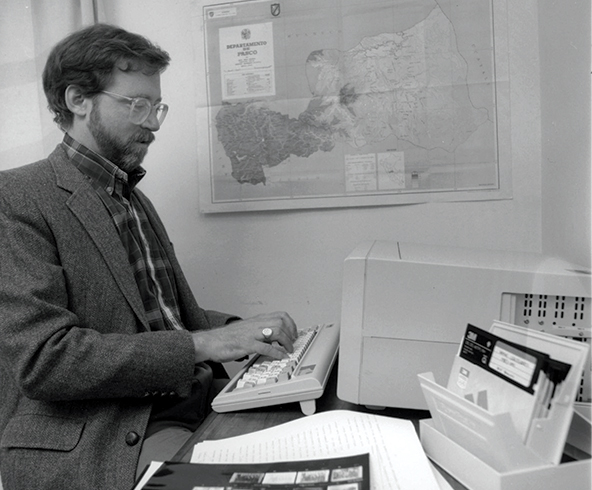
Michael F. Brown during his residency at SAR in 1988.
My love affair with SAR has a history longer than some may realize. As an undergraduate, I was introduced to the field of anthropology by a Tewa scholar from Ohkay Owingeh, Alfonso Ortiz, who had strong links to SAR. When I first visited SAR in 1982 as a participant in an advanced seminar organized by the late Barbara Tedlock, I was charmed by the El Delirio campus and dazzled by the erudition of other scholars in the seminar, most of whom were more experienced than I.
Six years later I found myself again on campus, this time as a Weatherhead Fellow. The book that I completed that year, War of Shadows—co-authored with a colleague, Eduardo Fernández—was influenced by the free-thinking atmosphere of Santa Fe, which fostered experimentation with a more narrative-driven approach to writing that defined the rest of my career. After that fellowship year, I made several shorter visits to Santa Fe, either to work on new research projects or collaborate with then-president Douglas Schwartz on various initiatives. One of the tasks assigned to me was drafting SAR’s request for funding to wire the campus for a new, emerging technology called the Internet.
When SAR began to search for a new president in 2013, I was completing my thirty-fourth year on the faculty of Williams College and ready for new challenges. The SAR board’s search committee saw fit to offer me the job.
It has been an eventful decade, and I leave convinced that 117 years after its founding, SAR is stronger than ever
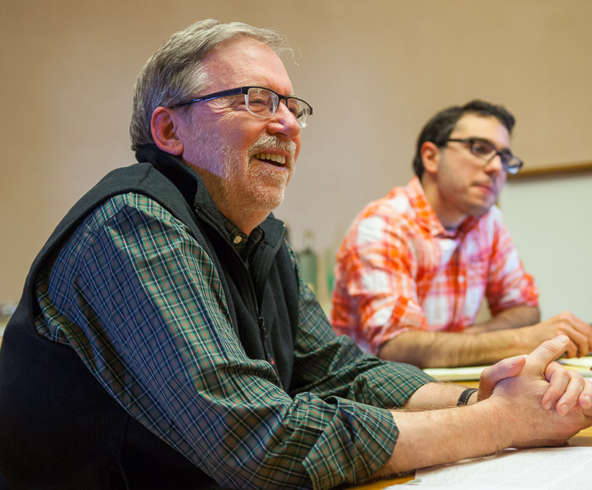
Michael during an SAR seminar.
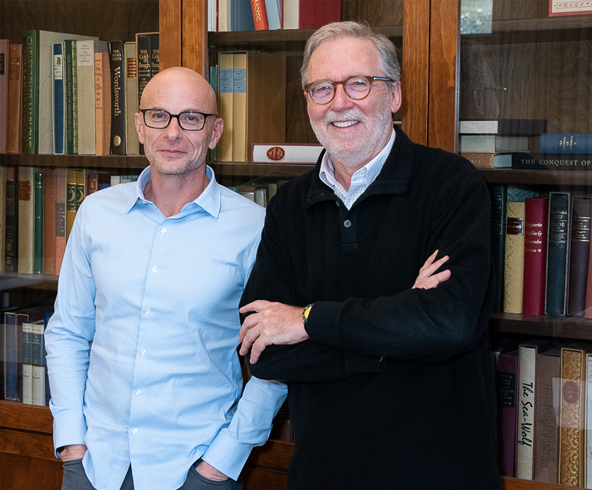
Michael and David Treuer in March 2019.
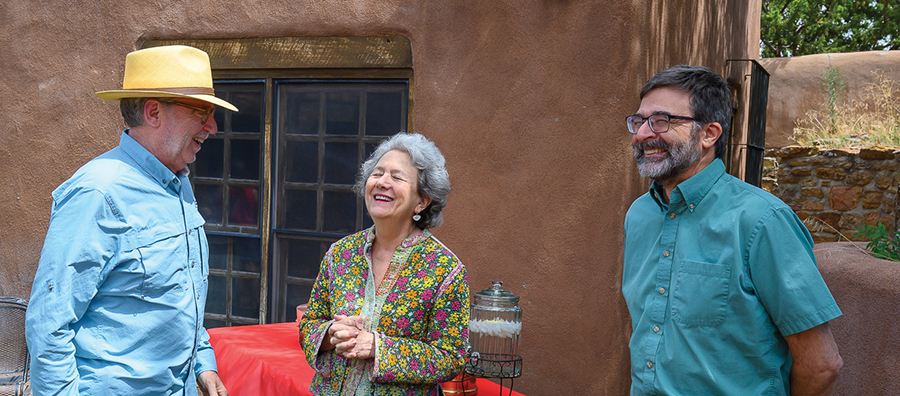
Michael, Elizabeth Glassman, and Paul Ryer during a scholar welcome picnic in 2023.
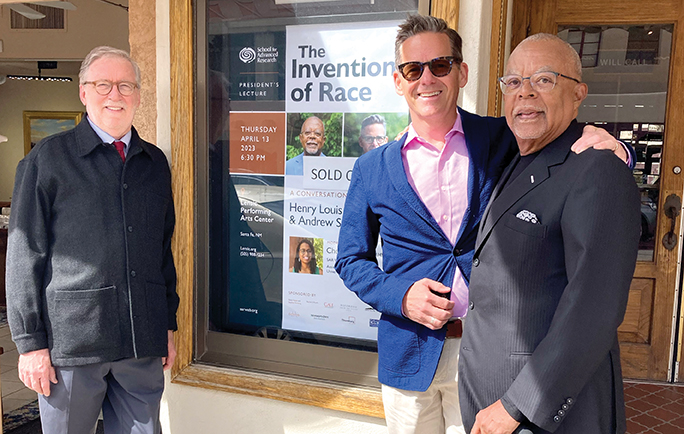
Michael with Andrew S. Curran and Henry Louis Gates Jr. in front of the Lensic in 2023.
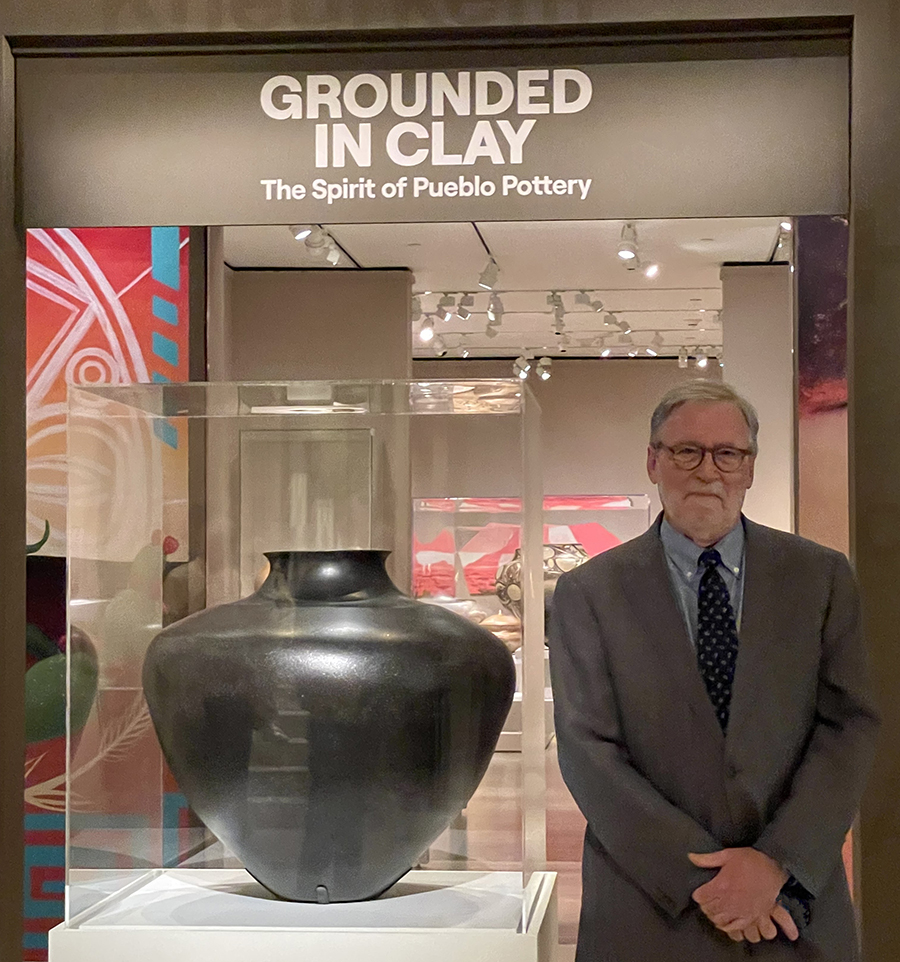
Michael at the opening of Grounded in Clay at the Metropolitan Museum of Art, New York, July 2023.
Our historic campus buildings have undergone award-winning improvements. Thanks to prudent board management and an energetic advancement team, our endowment has grown significantly. We have added new scholar fellowships in Latino Studies, linking SAR’s mission to New Mexico’s cultural heritage in ways that complement our enduring commitment to the region’s Native American communities. Our increasingly sophisticated online programs now reach all fifty states and more than thirty nations and territories. Expanded public programming has attracted new audiences. One of the state’s cultural treasures, the Indian Arts Research Center, is touring its first-ever exhibition, Grounded in Clay, at several of the nation’s foremost art museums. The IARC is now recognized nationally as leader in museum ethics and collaboration with descendant communities. Over the past decade, four of our scholar alumni have either won or been shortlisted for a National Book Award—most recently former SAR board member Ned Blackhawk. One of our former Native American artist fellows, Jeffrey Gibson, is currently representing the U.S. at Venice’s Biennale.
As I reach this fork in my professional life, I wish to thank you, SAR’s members, for your loyalty, generosity, and especially for your curiosity about the world. Your passion for learning has fueled my work for the past decade and continues to inspire the efforts of SAR’s talented staff. I look forward to following SAR’s next achievements in the coming years.
Cordially,
Michael
